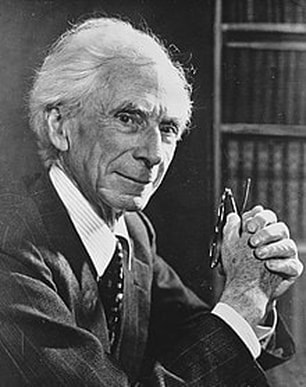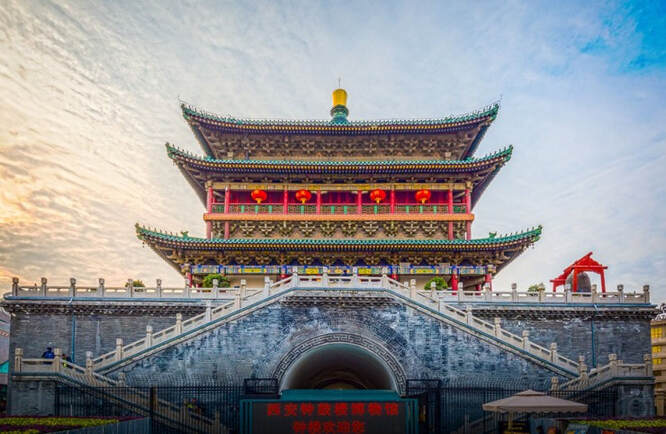|
Russell discusses the internal state of China, as he understood it in 1920-21, in his chapter "Modern China" in The Problem of China. He thinks there are only two ways the Chinese can escape from imperialist domination. The first way is for China to become a strong military power. Russell thinks this would be a disaster. However since "the capitalist system involves in its very essence a predatory relation of the strong towards the weak [a perfectly good Leninist proposition even if clumsily expressed], internationally as well as nationally" he proposes a second way for Chinese liberation. The foreign imperialist powers will have to " become Socialistic." Russell thinks this is the only real solution for the Chinese. It didn't occur to Russell that China might free itself by military means and work towards socialism at the same time. It goes without saying that the Chinese would be waiting for kingdom come to be liberated if they had taken Russell's advice and expected Europe and America to turn socialist. Russell, as did many in his generation, expected a major war to eventually break out between Japan and the United States over who would be top dog in the far east, but did not see that war as an opportunity for the victims of imperialism to break free and become independent. At any rate, in respect to his "only" solution to Chinese liberation, Russell was wildly off the mark-- despite his Leninist grasp of the nature of capitalism. Russell did, however, urge progressives to support the fledgling government of Sun Yat-sen (1866-1925) which was at this time battling the warlord system. No one at that time foresaw that the Kuomintang would degenerate into a fascist despotism under Sun's successor Chiang Kai-shek (1887-1975) or that the recently founded Communist Party of China would be the eventual vehicle both for Chinese liberation and regeneration. Russell's next comment was completely correct and was about an issue that, after the success of the revolution, the Chinese took very seriously. Russell wrote that "in the long run, if the birth-rate is as great as is usually supposed, no permanent cure for their poverty is possible while their families continue to be so large." The introduction of birth control and the one child policy, which was a drastic step and has now been reevaluated, probably helped to considerably contain the population from an unmanageable explosion (not to credit natural disasters and the unintended consequences of policies that turned out to be mistaken with respect to premature industrial expansion and agricultural reforms in the 1950s). Another problem the Chinese would have to overcome before they could hope to compete with the West, according to Russell, was lack of a modern educational system for the masses. This too the CPC saw as a major problem and immediately after coming to power launched a mass literacy program and built schools and institutions of higher learning throughout China. This was a prerequisite, Russell said, as Chinese workers would need education and skills in order to command decent wages (he did not foresee a socialist revolution in China). Nevertheless industrialization in China, as in all other countries, would begin to develop by methods that are "sordid and cruel." Intellectuals, he remarked, "wish to be told of some less horrible method by which their country may be industrialized, but so far none is in sight." Whether you are capitalist or socialist, it appears, if you are starting from a primitive economic base the only way you can accumulate capital to make industrial advances is to take it from the surplus value created by the working class. As we will see Russell thinks state capitalism, or state socialism (they are the same for him), would be the best way for the Chinese to go-- but he doesn't envision a revolution. Russell now hits upon a major problem which I think was responsible for some of the major errors of the Mao era. "There is one traditional Chinese belief which dies very hard, and that is the belief that correct ethical sentiments are more important than detailed scientific knowledge. This view is, of course, derived from the Confucian tradition, and is more or less to be found in a pre-industrial society." One would think that Russell, with commitments to science as the basis for correct knowledge of the world, would hold that "detailed scientific knowledge" is always to be preferred; how would a pre-industrial society ever advance to a higher level without also developing science? In the 1950s and 60s Mao pushed the line that politics ( "correct ethical sentiments") was the correct guide to action and could win out over any objections based on economic (scientific) considerations. This led to the twin disasters of the Great Leap Forward and the Great Proletarian Cultural Revolution. There was no basis in Marxism for the views he was espousing even though Mao used Marxist terminology to try and explain his thought. If Russell was correct, this would have been a case of the unconscious Confucian substrata in Mao's world view manifesting itself in Marxist guise. Mao himself was ant-Confucian at this time so even he was blind to the real origins of the reactionary policies he was peddling in Marxist dress. I should also point out that it was only one wing of Confucianism that held to this view-- an Idealist trend that developed in the Ming Dynasty and that there were other wings of Confucianism that were materialistically motivated. Mao had indeed studied Ming Confucianism and was influenced by it in his youth, and, I think, unconsciously after he assumed power. Coming up Wednesday: Part Three: "Present Forces and Tendencies in the Far East" AuthorThomas Riggins is a retired philosophy teacher (NYU, The New School of Social Research, among others) who received a PhD from the CUNY Graduate Center (1983). He has been active in the civil rights and peace movements since the 1960s when he was chairman of the Young People's Socialist League at Florida State University and also worked for CORE in voter registration in north Florida (Leon County). He has written for many online publications such as People's World and Political Affairs where he was an associate editor. He also served on the board of the Bertrand Russell Society and was president of the Corliss Lamont chapter in New York City of the American Humanist Association.
0 Comments
Leave a Reply. |
Details
Archives
May 2022
Categories |


 RSS Feed
RSS Feed